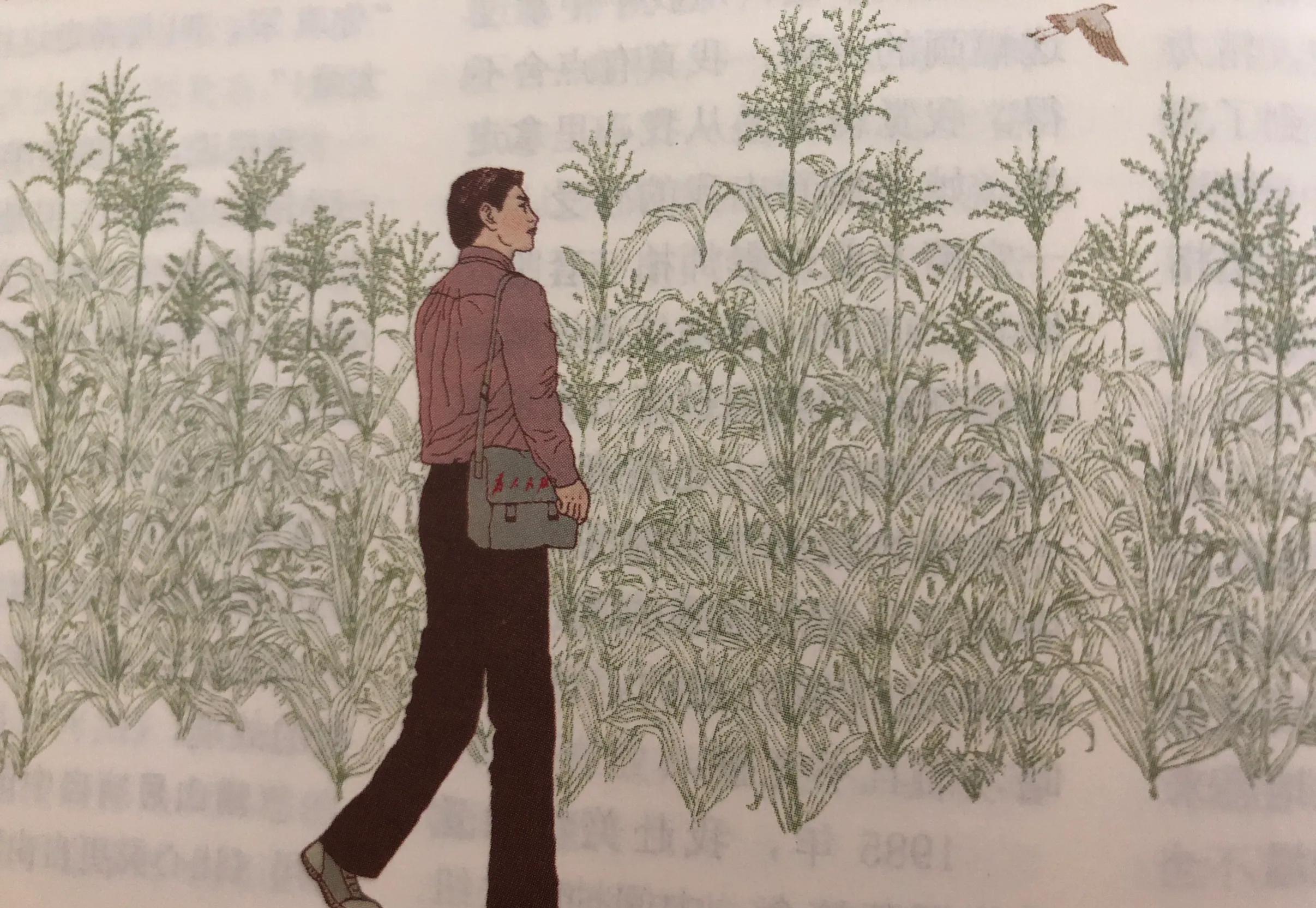In 1975, in Jiutai County, Jilin Province (now Jiutai District, Changchun City), a young man surnamed Han was about to graduate from a training class for young cadres in the county. At the end of the course, the teacher asked each student to do a social survey: go to the countryside to visit the families of the villagers. The target of the visit sent to the young man was 50 or 60 households in a natural village 20 kilometers away from the county seat.
On a clear autumn day, the young man picked up his satchel and set off early, going door to door to visit the poor and the poor. At dusk, there were only five families left. One family on the east slope, two at the foot of the north mountain, one on the west slope, and one in the middle, are all grass houses. The boy walked along a dirt road with oxen ruts and sheep dung eggs. It was early autumn, a few ridges of autumn cabbage on the right side of the road had not yet been covered, and on the left side was a large corn field, and the corn cob had jumped out of the red ribbon. Further ahead of the cornfield, there is a small square dwarf sorghum field. A short sheep gut trail stretches west from the ground, ending in a very old crooked-necked locust tree, and under the tree a wider gravel slope leads to a grass hut at a right angle to the trail.
Green trees, slanting sun, dappled with light and shadow. The young man slowed down and walked into the yard. A 40-year-old woman opened the door and came out, quickly welcoming strange guests into the house. Entering the West House, there is no decent furniture and furnishings in the house, the window is a kang, the bare ground, and the light bulbs hang from the beams, which can be said to be the four walls of the house. Unlike most of the farmhouses he visited, they had newspapers plastered on their walls. What particularly caught the attention of this young man who likes literature was that the newspaper actually copied ancient poems with a brush. The lad asked the hostess who had copied the poem on the wall. "My eldest son." The hostess replied. The young man asked, "What does your eldest son do?"
The university went. The young man was taken aback: "College? Where's the university?"" Changchun, Jilin University. The young man looked closely at the peasant woman in front of him: thin, pale and wrinkled, but with clear eyebrows; The clothing is extremely ordinary, even patched, but quite neat; The melancholy expression revealed a bit of persistence and perseverance.
It can be asserted that the fifty or sixty peasant homes he visited, and only the ancient poems copied on the walls were printed in his mind, which may have been the only "result" of his social investigation.
After graduation, the young man was assigned to the county organization department as an officer. Later, he became a cadre in a commune (township), and then a deputy secretary and secretary. Because he loves literature, good writing, good eloquence, coupled with feelings and ability, he has been promoted all the way.
43 years later, in the summer of 2018, Secretary Han finally met the boy who copied the ancient poem. The turn of events was that he had read in the newspaper a few months earlier about translating Haruki Murakami's novel The Assassination of the Knight Commander, and then called a relative of mine for my contact information. I happened to be on vacation in the countryside, so I was able to meet. Needless to say, 43 years ago we were all so young, one was studying at a university in the provincial city and the other was training in a qinggan class in the county seat. And 43 years later, we are all white and no longer what we used to be. The wine table was lit, and I was overwhelmed with emotion for a while. Thanks for the ancient poems on the wall? Thanks for the invisible fate? Thanks for the chance?
Excerpt from Reader's Issue 2020.2
